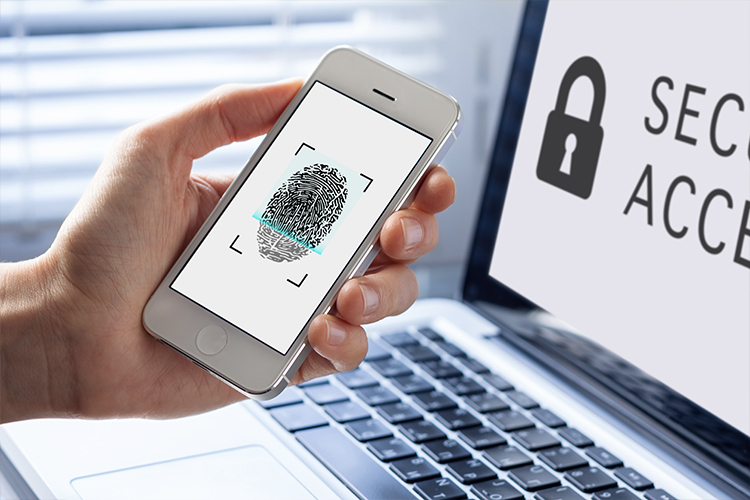Passwords. If you live in a modern society, you are probably all too familiar with passwords. You’ve probably been forced to memorize dozens of combinations of letters and numbers that allow you access to your finances or company data.
But just imagine no longer needing a pin number or password to access your accounts and devices. Instead, you use parts of your body that can’t be replicated in order to verify your identity. Sounds like science fiction but it’s the future, and it’s already something we’re starting to see with fingerprint biometrics and facial recognition software.
While many think biometric data should be a supplement to passwords, this futuristic tech is big business. It eliminates the possibility of someone stealing, sharing, or saving passwords—a common cause of breached information. Here are some verification technologies that will likely replace your secret written password someday.
Facial recognition software
The latest smartphones boast facial recognition to help keep your device secure and identify others. It’s similar technology to how your photos detect and suggest who might be in them. Is this Susie Smith? Yes, Facebook, it is. Facial recognition sounds like it belongs in a spy movie, and maybe it does. But technology has to advance somehow, and it looks like using computers to map faces and identify people is the most achievable next step in password advancement.
Wearable passwords
The future of wearables isn’t just for fitness and answering phone calls, it’s for identification and password verification. Bands that recognize the wearer’s unique electric cardiac signature are a great example. Using heartbeat sensors, these bands can unlock devices and remember your passwords, keeping your information safe and just a heartbeat away.
Edible passwords
Eat your passwords? It’s a possibility. Ingestible pills use stomach acid to detect glucose levels and other body info, then send encrypted data to an external receiver—the ultimate biometric identification. But don’t worry, you don’t need to take a pill to log in to your device just yet. This particular tech is a long way off, so you can stick to your old-fashioned passwords for now.
Tattooed passwords
Computer tattoos are like mini-motherboards, storing biometric information like ECG, EEG, body temperature and all the tech needed for a wireless connection. This e-skin identity solution is meant to turn you into a walking password that cannot be replicated. It’s a key you’ll never lose, even if you tried.
Biometric passwords
We actually already have this technology. If you use your finger to unlock your smartphone, you’re using the fingerprint reader as a password. Might seem completely normal in this day and age, but back in the day, biometric passwords sounded to people just like edible passwords sound to us right now—completely strange and unbelievable.
No matter what next password methods appear, it’s always smart to stay on top of them. If you’re still using a written password, at least make sure it’s secure and hard for cybercriminals to crack. Use capital letters, lowercase letters, numbers, and symbols in a random sequence—and make sure it’s at least 12 characters long. Until tattooed passwords come around, you need to take precautions to make sure your data and personal information is properly protected.






